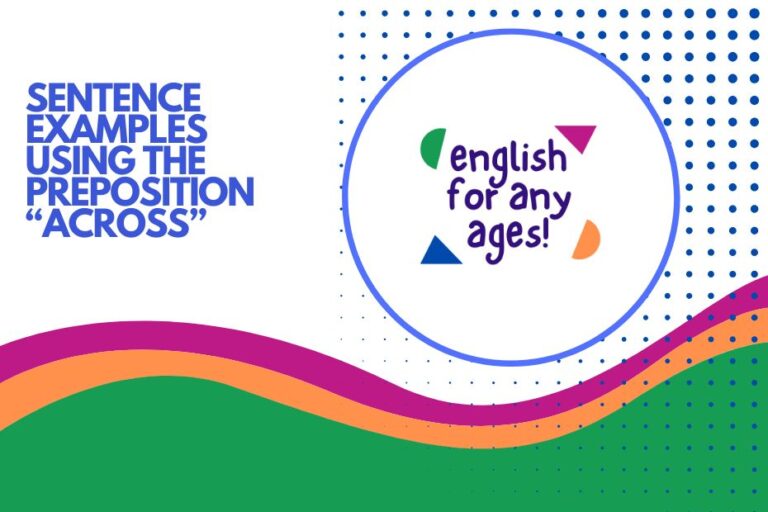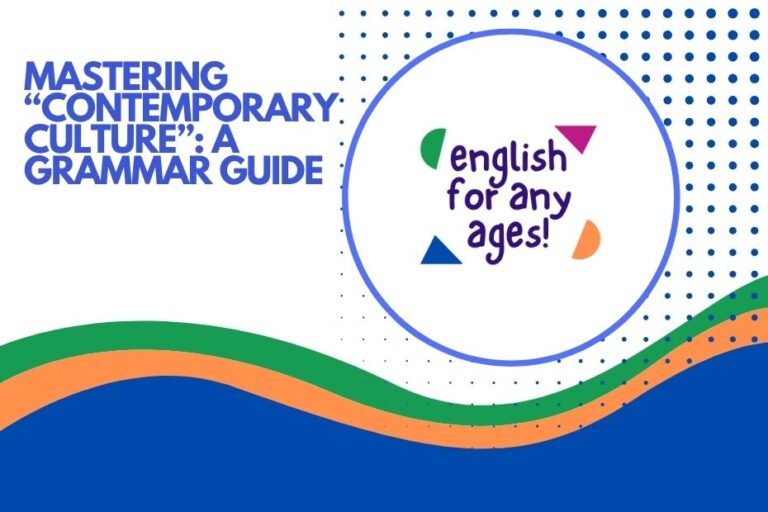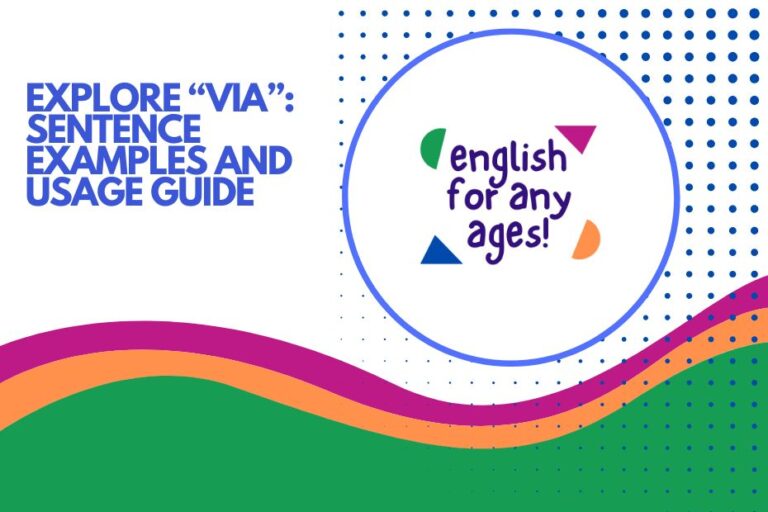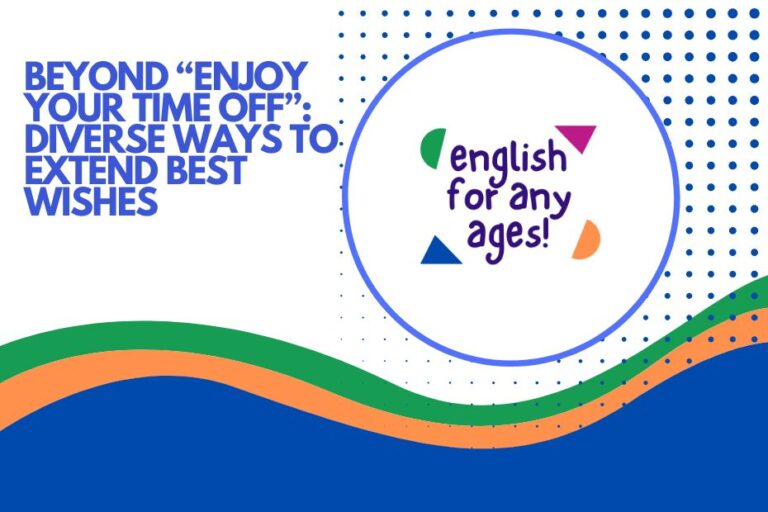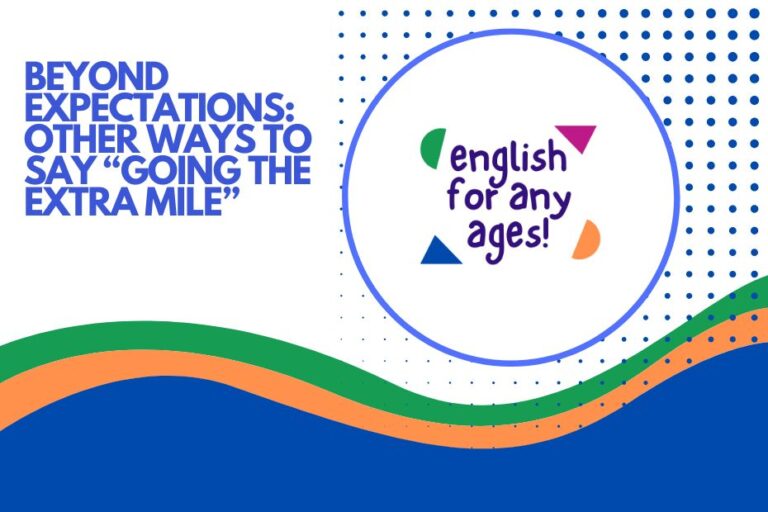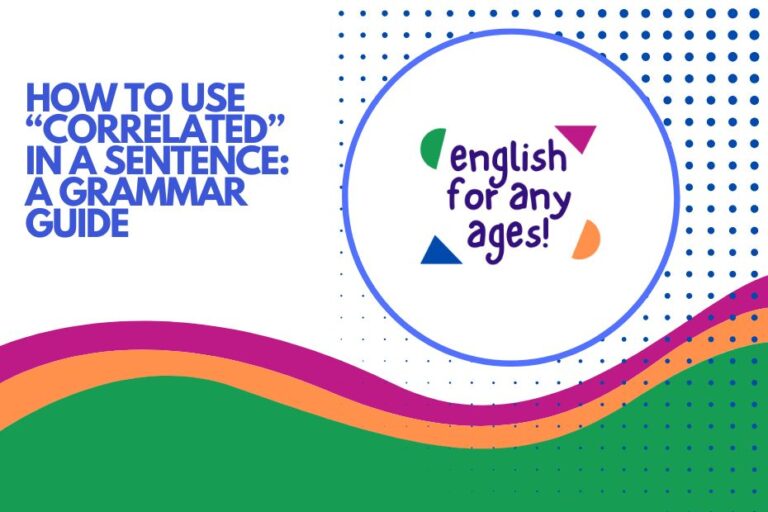Mastering “Until”: Sentence Examples and Usage Guide
Understanding the preposition “until” is crucial for constructing clear and accurate sentences in English. “Until” indicates a time limit, specifying when an action or state will cease.
This article provides a comprehensive guide to using “until” effectively, covering its definition, structural breakdown, various usages, common mistakes, and practice exercises. Whether you’re a beginner or an advanced learner, this resource will enhance your understanding and proficiency in using “until” in your writing and speech.
Table of Contents
- Introduction
- Definition of “Until”
- Structural Breakdown
- Types and Categories of “Until” Usage
- Sentence Examples with “Until”
- Usage Rules for “Until”
- Common Mistakes with “Until”
- Practice Exercises
- Advanced Topics
- Frequently Asked Questions (FAQ)
- Conclusion
Introduction
The word “until” is a fundamental component of English grammar, essential for expressing temporal relationships and setting boundaries on actions or states. Mastering its usage allows you to convey precise meanings related to time and conditions.
This comprehensive guide is designed to provide you with a deep understanding of “until,” covering its various functions, structural patterns, and common pitfalls. Whether you are an ESL student aiming to improve your grammatical accuracy or a native speaker seeking to refine your writing skills, this article will offer valuable insights and practical examples to enhance your command of the English language.
By the end of this guide, you will be able to confidently and correctly use “until” in a variety of contexts.
Definition of “Until”
“Until” is a versatile word primarily used as a preposition and a conjunction. It specifies a point in time up to which an action continues or a state remains valid. As a preposition, “until” is followed by a noun or pronoun. As a conjunction, it introduces a clause. Its core function is to establish a temporal boundary, indicating the cessation or termination of an event or condition.
In simpler terms, “until” tells us how long something will last. It marks the endpoint of a duration, providing clarity and precision in communication.
For instance, “I will wait until 5 PM” means the waiting action will stop at 5 PM. The word derives from Old English and has maintained its core meaning related to time and duration throughout its linguistic history.
Structural Breakdown
The structural role of “until” varies depending on whether it functions as a preposition or a conjunction. Understanding these structures is key to using “until” correctly.
- As a Preposition: “Until” + Noun/Pronoun (e.g., until tomorrow, until the end). The noun or pronoun specifies the time at which the action or state ceases.
- As a Conjunction: “Until” + Clause (Subject + Verb + Object/Complement) (e.g., until the rain stops, until he arrives). The clause provides more detailed information about the terminating event.
The clause following “until” often uses the present simple tense to refer to future events, especially after verbs of waiting, staying, and similar actions. This is a common pattern in English grammar for subordinate clauses indicating time.
Types and Categories of “Until” Usage
The word “until” can be categorized based on its specific function within a sentence. These categories help to clarify its meaning and application.
Expressing Time Duration
This is the most common usage, indicating how long an action or state continues before stopping. Example: “I will stay here until the meeting ends.”
Indicating Condition Termination
Here, “until” specifies the condition that must be met for an action to stop or a state to change. Example: “You can’t leave until you finish your work.”
Negative Contexts
“Until” is often used in negative sentences to emphasize the continuation of a state or action up to a specific point. Example: “I didn’t know about it until yesterday.”
“Until” as a Conjunction
When used as a conjunction, “until” connects two clauses, indicating that the action in the main clause continues up to the time specified in the subordinate clause. Example: “She practiced the piano until her fingers were sore.”
“Until” in Questions
Using “until” in questions helps to inquire about the duration or the terminating point of an action or state. Example: “How long will you wait until he arrives?”
Sentence Examples with “Until”
The following sections provide a variety of sentence examples using “until,” categorized by their specific usage. These examples will help you understand how to use “until” correctly in different contexts.
Expressing Time Duration
This table presents examples of “until” used to express the duration of an action or state. It showcases how “until” defines the endpoint or limit of a particular period.
| # | Sentence | Explanation |
|---|---|---|
| 1 | I will wait here until 6 PM. | The waiting action will continue until 6 PM. |
| 2 | The store is open until 9 o’clock tonight. | The operating hours of the store extend until 9 PM. |
| 3 | Please remain seated until the plane comes to a complete stop. | Passengers should stay seated until the plane stops moving. |
| 4 | She studied until midnight. | Her studying continued until midnight. |
| 5 | We stayed at the party until everyone had left. | Our presence at the party lasted until all other guests departed. |
| 6 | The children played outside until it got dark. | The outdoor playtime lasted until nightfall. |
| 7 | He worked on the project until he finished it. | His work on the project continued until completion. |
| 8 | They practiced their music until they were perfect. | Their musical practice continued until they achieved perfection. |
| 9 | I will not give up until I succeed. | My determination will persist until I achieve success. |
| 10 | The negotiations continued until a compromise was reached. | The negotiation process lasted until an agreement was made. |
| 11 | The library is open until 8 PM on weekdays. | The library’s weekday operating hours extend until 8 PM. |
| 12 | I’ll keep trying until I get it right. | The effort will continue until the correct outcome is achieved. |
| 13 | We will keep fighting until justice is served. | The struggle will persist until justice is achieved. |
| 14 | The concert will last until 10 PM. | The concert’s duration extends until 10 PM. |
| 15 | He waited until the bus arrived. | His waiting continued until the bus arrived. |
| 16 | She read the book until she fell asleep. | Her reading continued until she drifted off to sleep. |
| 17 | The exhibition runs until the end of the month. | The exhibition will be available to view until the last day of the month. |
| 18 | I’ll be here until you need me. | I will remain available until you require my assistance. |
| 19 | The sale continues until stocks last. | The discounted prices are valid until the items are sold out. |
| 20 | The museum is closed until further notice. | The museum will remain inaccessible until an official announcement is made regarding its reopening. |
| 21 | Please do not disturb me until I have finished this task. | I request that you allow me to complete this task without interruption. |
| 22 | The offer is valid until December 31st. | The special deal or promotion can be redeemed up to and including December 31st. |
| 23 | You can use this coupon until it expires. | This voucher remains valid for use as long as it has not yet reached its expiration date. |
| 24 | I will keep practicing until I master this skill. | I am committed to continuing my practice sessions until I achieve a high level of proficiency in this skill. |
| 25 | The subscription is active until next year. | The paid membership or service will remain accessible throughout the current year and until the specified time next year. |
Indicating Condition Termination
This table illustrates how “until” is used to specify a condition that must be met for an action to cease or a state to change. The examples highlight the conditional aspect of “until” in defining termination points.
| # | Sentence | Explanation |
|---|---|---|
| 1 | You can’t go out until you clean your room. | Going out is prohibited until the room is cleaned. |
| 2 | I won’t say anything until I speak to my lawyer. | Silence will be maintained until legal counsel is consulted. |
| 3 | The game will not start until the rain stops. | The commencement of the game is dependent on the cessation of rain. |
| 4 | She refused to eat until she got her favorite toy. | Her eating was contingent on receiving her preferred toy. |
| 5 | He didn’t relax until he finished all his chores. | Relaxation was postponed until the completion of all assigned chores. |
| 6 | They couldn’t leave the country until they got their visas. | Departure from the country was impossible until visa acquisition. |
| 7 | I won’t believe it until I see it with my own eyes. | Belief is conditional upon visual confirmation. |
| 8 | The project will not be approved until all revisions are made. | Project approval is contingent on the completion of all necessary revisions. |
| 9 | She won’t be happy until she gets a promotion. | Her happiness is dependent on receiving a promotion. |
| 10 | He can’t drive until he gets his license. | Driving is prohibited until he obtains a driver’s license. |
| 11 | You cannot access the content until you subscribe. | Access to the content is restricted until a subscription is purchased. |
| 12 | The machine will not operate until it is properly calibrated. | The machine’s functionality is dependent on correct calibration. |
| 13 | He refused to answer the questions until his lawyer arrived. | He withheld answers until his legal representative was present. |
| 14 | They couldn’t announce the results until all the votes were counted. | The announcement of results was postponed until all votes were tallied. |
| 15 | The door will remain locked until the alarm is deactivated. | The door’s locked state persists until the alarm is disarmed. |
| 16 | You can’t have dessert until you eat your vegetables. | Dessert consumption is conditional upon vegetable consumption. |
| 17 | I won’t invest until I see a solid business plan. | My investment decision is contingent upon reviewing a well-structured business plan. |
| 18 | The system will remain offline until maintenance is complete. | The system’s offline status will continue until the scheduled maintenance operations are finished. |
| 19 | She won’t forgive him until he apologizes sincerely. | Her forgiveness is contingent upon receiving a genuine apology from him. |
| 20 | He can’t get a raise until he improves his performance. | His eligibility for a salary increase depends on significant improvements in his job performance. |
| 21 | The contract is not valid until both parties sign it. | The agreement only becomes legally binding when all involved parties provide their signatures. |
| 22 | The application will not proceed until all required documents are submitted. | The processing of the application cannot begin until all the necessary paperwork is provided. |
| 23 | The software cannot be installed until the previous version is uninstalled. | To proceed with the new software installation, the existing version must first be removed from the system. |
| 24 | The medication should not be taken until a doctor prescribes it. | It is advised to refrain from using the drug until a healthcare professional has given a prescription. |
| 25 | The project cannot launch until funding is secured. | The commencement of the new project is dependent on obtaining the necessary financial resources. |
Using “Until” in Negative Contexts
This table demonstrates how “until” is employed in negative sentences to emphasize the continuation of a state or action up to a specific point. The negative context often highlights a change or realization that occurs at the specified time.
| # | Sentence | Explanation |
|---|---|---|
| 1 | I didn’t know about it until yesterday. | My awareness of the matter began yesterday. |
| 2 | She didn’t start feeling better until the medication kicked in. | Her improved health began after the medication took effect. |
| 3 | He didn’t understand the problem until it was explained to him. | His comprehension of the issue occurred after it was clarified. |
| 4 | They didn’t arrive until after midnight. | Their arrival occurred after midnight. |
| 5 | We didn’t leave until the movie was over. | Our departure occurred after the movie concluded. |
| 6 | The truth wasn’t revealed until the investigation was complete. | The revelation of the truth occurred after the investigation concluded. |
| 7 | I hadn’t seen him until this morning. | My last sighting of him was this morning. |
| 8 | She hadn’t traveled abroad until last year. | Her first international travel experience was last year. |
| 9 | He hadn’t played the piano until recently. | His resumption of piano playing occurred recently. |
| 10 | They hadn’t met each other until the conference. | Their initial meeting occurred at the conference. |
| 11 | I hadn’t experienced such a thing until then. | My first exposure to that particular experience was at that time. |
| 12 | She hadn’t appreciated classical music until she attended the concert. | Her appreciation for classical music began after she went to the concert. |
| 13 | He hadn’t realized the importance of education until he started working. | His understanding of the value of education began after he entered the workforce. |
| 14 | They hadn’t understood the instructions until they saw a demonstration. | Their comprehension of the instructions occurred after they observed a demonstration. |
| 15 | I hadn’t felt so nervous until the day of the exam. | My peak level of nervousness occurred on the day of the exam. |
| 16 | She hadn’t been to that restaurant until last week. | Her first visit to the restaurant was last week. |
| 17 | He hadn’t spoken to her until yesterday’s meeting. | Their last conversation was at yesterday’s meeting. |
| 18 | They hadn’t considered moving until they saw the new house. | Their consideration of relocation began after they viewed the new house. |
| 19 | I hadn’t needed glasses until I turned forty. | My need for corrective lenses began at the age of forty. |
| 20 | She hadn’t experienced such kindness until she met him. | Her experience of such kindness began with her encounter with him. |
| 21 | We hadn’t made any progress until the new team joined. | Advancement only began when the freshly appointed team members came aboard. |
| 22 | They hadn’t felt so relieved until they heard the good news. | The sensation of relief only washed over them upon receiving positive updates. |
| 23 | I hadn’t understood the instructions until the teacher explained them again. | My understanding dawned when the teacher provided a second explanation. |
| 24 | He hadn’t experienced real hunger until he went backpacking. | Genuine hunger only came to the fore when he engaged in backpacking adventures. |
| 25 | She hadn’t taken a vacation until she retired. | Her first time taking time off for a vacation occurred after she ended her professional career. |
Usage Rules for “Until”
Using “until” correctly involves understanding several key rules, including tense agreement and avoiding double negatives. These rules ensure clarity and grammatical accuracy in your sentences.
Tense Agreement with “Until”
When “until” introduces a clause, pay attention to tense agreement. If the main clause is in the future tense, the subordinate clause often uses the present simple tense to refer to future events. For example: “I will wait until he arrives.” (Future in main clause, present simple in subordinate clause).
However, if the main clause is in the past tense, the subordinate clause should also be in the past tense. For example: “I waited until he arrived.” (Past in both clauses).
Avoiding Double Negatives
Avoid using double negatives with “until.” A double negative can create confusion and change the intended meaning of the sentence. Instead of saying “I won’t leave until you don’t apologize,” say “I won’t leave until you apologize.”
Formal vs. Informal Usage
In formal writing, it’s generally preferred to use “until” rather than its shortened form “’til” or “till.” While “’til” and “till” are acceptable in informal contexts, “until” maintains a more professional tone. Also, avoid starting a sentence with “until” in formal writing; rephrase the sentence for better flow and clarity.
Common Mistakes with “Until”
Several common mistakes can occur when using “until.” Recognizing these errors can help you avoid them and improve your grammatical accuracy.
| Incorrect | Correct | Explanation |
|---|---|---|
| I will wait until he will arrive. | I will wait until he arrives. | Incorrect tense usage in the subordinate clause. |
| I won’t leave until you don’t apologize. | I won’t leave until you apologize. | Double negative; the “don’t” is unnecessary. |
| Until the rain stops, we can’t go out. | We can’t go out until the rain stops. | While grammatically correct, starting with “until” is less common in formal contexts. |
| I waited until he will arrive. | I waited until he arrived. | Incorrect tense usage. Past tense should be consistent. |
| She will not start until he won’t come. | She will not start until he comes. | Double negative to be avoided. |
| Until I don’t finish, I can’t rest. | Until I finish, I can rest. | Double negative makes the sentence confusing. |
| He didn’t call until he hadn’t received the message. | He didn’t call until he received the message. | Avoid using double negative constructions. |
| I’m not leaving until they won’t pay me. | I’m not leaving until they pay me. | Double negatives should always be avoided. |
| She didn’t speak until nobody asked. | She didn’t speak until somebody asked. | The original sentence doesn’t make sense. |
| They hadn’t eaten until they didn’t cook. | They hadn’t eaten until they cooked. | Avoid double negatives for clearer meaning. |
Practice Exercises
Test your understanding of “until” with these practice exercises. Fill in the blanks with the correct form of the verb or complete the sentences using “until” appropriately.
Exercise 1: Fill in the blanks with the correct form of the verb.
| # | Sentence | Answer |
|---|---|---|
| 1 | I will wait here until he ____ (arrive). | arrives |
| 2 | She studied until she ____ (feel) tired. | felt |
| 3 | They won’t leave until the meeting ____ (end). | ends |
| 4 | He didn’t say anything until I ____ (ask) him directly. | asked |
| 5 | We will keep practicing until we ____ (master) the skill. | master |
| 6 | She refused to speak until her lawyer ____ (be) present. | was |
| 7 | The store is open until it ____ (be) 9 PM. | is |
| 8 | I hadn’t known about it until you ____ (tell) me. | told |
| 9 | They hadn’t relaxed until the work ____ (be) done. | was |
| 10 | She will keep working until she ____ (receive) a promotion. | receives |
Exercise 2: Complete the sentences using “until” appropriately.
| # | Sentence | Answer |
|---|---|---|
| 1 | You can’t have dessert ____. | until you eat your dinner. |
| 2 | The museum is closed ____. | until further notice. |
| 3 | I will not give up ____. | until I succeed. |
| 4 | She hadn’t traveled abroad ____. | until last year. |
| 5 | We stayed at the party ____. | until everyone had left. |
| 6 | He refused to eat ____. | until he got his favorite toy. |
| 7 | They couldn’t leave the country ____. | until they got their visas. |
| 8 | I won’t believe it ____. | until I see it with my own eyes. |
| 9 | The children played outside ____. | until it got dark. |
| 10 | The game will not start ____. | until the rain stops. |
Exercise 3: Rewrite the following sentences to include “until.”
| # | Original Sentence | Rewritten Sentence |
|---|---|---|
| 1 | I will wait for him; his arrival is the condition for me to stop waiting. | I will wait until he arrives. |
| 2 | The store is open; 9 PM is the closing time. | The store is open until 9 PM. |
| 3 | She studied; she felt tired, so she stopped. | She studied until she felt tired. |
| 4 | They will leave; the meeting’s end is their cue. | They won’t leave until the meeting ends. |
| 5 | I didn’t say anything; then, he was directly asked. | I didn’t say anything until I asked him directly. |
| 6 | We will keep practicing; mastering the skill is our goal. | We will keep practicing until we master the skill. |
| 7 | She refused to speak; her lawyer’s presence was necessary. | She refused to speak until her lawyer was present. |
| 8 | I didn’t know about it; you told me, and then I knew. | I hadn’t known about it until you told me. |
| 9 | They hadn’t relaxed; the work was done, then they relaxed. | They hadn’t relaxed until the work was done. |
| 10 | She will keep working; receiving a promotion is her aim. | She will keep working until she receives a promotion. |
Advanced Topics
For advanced learners, understanding more nuanced uses of “until” can further enhance their proficiency. This includes recognizing subtle variations in meaning and usage in complex sentences.
One advanced topic is the use of “until” in conjunction with other time-related prepositions and adverbs. For example, “from now until then” combines “until” with “from” to specify a duration between two points in time.
Understanding these combinations requires a deeper grasp of English grammar and usage.
Another advanced topic is the use of “until” in literary or figurative contexts. Authors often use “until” in creative ways to convey deeper meanings or evoke specific emotions.
Analyzing these uses can provide valuable insights into the art of writing and the power of language.
Frequently Asked Questions (FAQ)
This section addresses some frequently asked questions about the use of “until.”
- What is the difference between “until” and “till”?
“Until” and “till” are generally interchangeable and have the same meaning. “Till” is simply a shorter, less formal version of “until.” “‘Til” is also used, but it’s considered even more informal and should be used sparingly in formal writing. The word ” ’til ” is considered incorrect by some because it implies that the word “until” is shortened from “untill”, which is not true.
- Can I start a sentence with “until”?
While grammatically correct, starting a sentence with “until” is generally discouraged in formal writing. It can sometimes make the sentence sound awkward or less polished. It is preferable to rephrase the sentence so that “until” appears in the middle or later part of the sentence.
- How do I avoid double negatives with “until”?
To avoid double negatives, ensure that the clause following “until” is not negated. For example, instead of saying “I won’t leave until you don’t apologize,” say “I won’t leave until you apologize.” The single negative in the main clause is sufficient to convey the intended meaning.
- What tense should I use after “until”?
The tense used after “until” depends on the tense of the main clause. If the main clause is in the future tense, use the present simple tense in the subordinate clause (e.g., “I will wait until he arrives”). If the main clause is in the past tense, use the past tense in the subordinate clause (e.g., “I waited until he arrived”).
- Is it correct to say “until when”?
The phrase “until when” is generally considered redundant because “until” already implies a time limit. It’s more common and grammatically sound to simply ask “How long will it last?” or “How long will you wait?”
- Can “until” be used with a gerund?
Yes, “until” can be followed by a gerund (a verb form ending in -ing that functions as a noun), although this usage is less common. For example: “He kept working until collapsing from exhaustion.” In this case, “collapsing” acts as a noun, specifying the point at which his working stopped.
- What is the difference between “by” and “until”?
“By” indicates a deadline or a point in time at or before which something must be completed. “Until” indicates a duration, specifying how long something will continue. For example, “Please submit your application by Friday” means the application must be submitted on or before Friday. “The library is open until 8 PM” means the library will remain open up to 8 PM.
- Can I use

